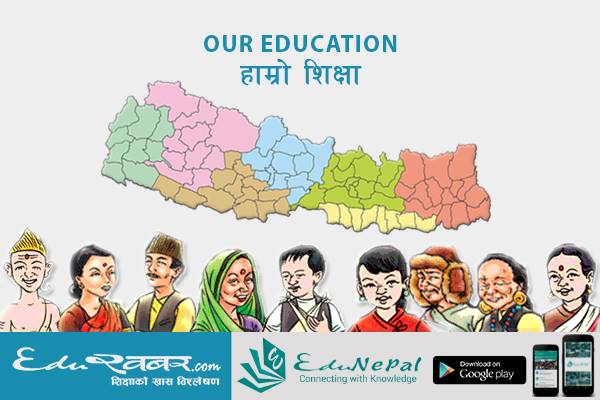
In the previous coalitions, the responsibility of the finance ministry and the education ministry was in the hands of the CPN Maoist Centre party. Krishna Bahadur Mahara was the main command of state treasury and Dhaniram Poudel was the education ministry. The former cabinet which included another Maoist leader Girirajmani Pokharel introduced eighth amendment of the education at which envisaged initiating process to make temporary teachers permanent and provide golden handshakes to those who do not want to attend examination.
With the change of the coalition, the plan hit a roadblock after Mahara declined to release budget demanded by his cabinet colleague. The education minister of Deuba led Cabinet Gopalman Shrestha was able to cash the conflicting interest of parties and ensure the passage of a bill proposing ninth amendment of the education act. A case challenging the amendment is now pending at the Supreme Court. Students who had acquired license for attending teacher's examination have announced agitation. The Education Ministry is still at mess regarding management of the teachers.
The point here is cabinet colleagues belonging to the same party were not able to find a meeting point on addressing one key problem regarding education. With the new federal set up, there will be three layers of government and critics are already commenting that it would be a tough job to oversee governance and administration. There are already questions on how will the right to education be ensured and a working relationship to ensure better coordination between education related institutions be established.
If we look at the past, there are instances that the appointment of teachers was put off due to standoff between the education ministry and finance ministry. The responsibility to formulate policy and law is with the hands of education ministry and other tasks are designated with the provincial and local bodies. We can imagine how complex will it be and what type of results will come out from such a situation. Another crucial element is that the financial aspects will determine results in all sectors. A sound economic system means there will be positive impact on areas like health and education. But unfortunately, our financial system is weak and dependent.
In the current fiscal year, the foreign grant on education amounts to more than Rs. 14.6 billion. In such a situation how will the local bodies fulfill their responsibility for looking into school level education? Foreign grants are under the jurisdiction of t he central government and in the new federal set up there may come complications in ensuring its equal distribution in all the local units.
Even if the local bodies are given the authority to mobilise money and look after the management of public schools, there are fears that the power could be misused. There may be nepotism while appointing teachers and the quality of education may again be compromised. But despite these risks, the responsibility to oversee school education has now already been transferred to local bodies. The local bodies are also responsible for resource generation and mobilization. The major investment on education comes from local resources and foreign grants. Therefore, it is a must to ensure coherence. Former Finance Secretary Krishnahari Banskota says taxation can be a way to finance education. He says, 'A certain percentage of education tax can be charged in all the sources of revenue. The local bodies themselves can levy property or rental tax and ensure a certain amount of that revenue is invested in education. Education Service Tax can be made mandatory and implemented across the country including customs.'
Similarly, the government can introduce provision of an additional education tax from the annual revenue paid in the form of property tax by citizens. The education tax can only be levied in private educational institutions. The private education sector of the country has attracted a huge amount of investment. The local governments can impose tax on students reading in private schools and transfer that income for the welfare of the community schools. Even while permitting operation of industries or allowing their production, a tax regime for education can be set up. The real estate trade has flourished across the country. An additional tax can be incorporated in the land revenue tax while a transaction of land and buildings are carried out. Similarly, taxation can be imposed on the import of woods and timber. However, such taxation should be made transparent. It will be the responsibility of the local government to ensure that the accounting system is updated and correct.
प्रतिक्रिया